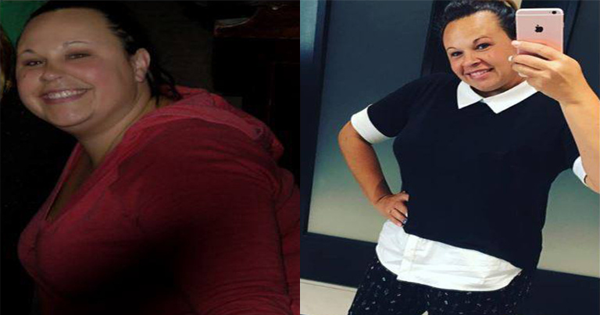Advertisement
Back in December 2015, after many years of struggling with her weight, 35-year-old mother Heather Albert finally underwent her long-waited weight loss surgery and managed to shed 80 pounds since.
It wasn’t just the surgery that allowed her to make this progress.
Albert also began practicing yoga, which she credits as helping with much of the weight loss.
During the time that Albert began practicing, she developed quite an affinity for Lululemon clothing. She wore the workout clothes often to her yoga practices.
This January, in celebration of her weight loss procedure and her own success in becoming more fit, Albert decided to go into an actual retail location of Lululemon to treat herself to new clothes. Because of her large size, Albert had only ever bought her Lululemon clothing online or in an outlet location.
Now, she was going to treat herself.
When Albert finally had a chance to stop into the store, she was on a business trip in Utah. She had time between commitments to swing by the store, and hurried to do so.
But the moment she stepped in, she overheard to floor employees whisper to themselves, “DO we even have anything in her size??” before giggling behind their hands.
“I was the only customer in the store. I knew it was directed at me. I was mortified. I quickly bought the two things I had in my hand that I had found and left the store,” Albert recalled.
She wasn’t able to take any time to herself immediately after the incident because of her work commitments – but when she was finished with everything that night, she let herself burst into tears in the hotel bathroom.
When she got home, Albert wrote a lengthy Facebook post about her experience at the store, and the company immediately responded to apologize.
For Albert though, it wasn’t about the apology she’d receive. "The most important part of my decision to make my experience public was to ensure that the individuals involved are re-educated,” she explained. “I would never want anyone to lose their job over something like this — I'd much prefer diversity and inclusion training, so that it turns the negative experience into something positive, a learning experience."




